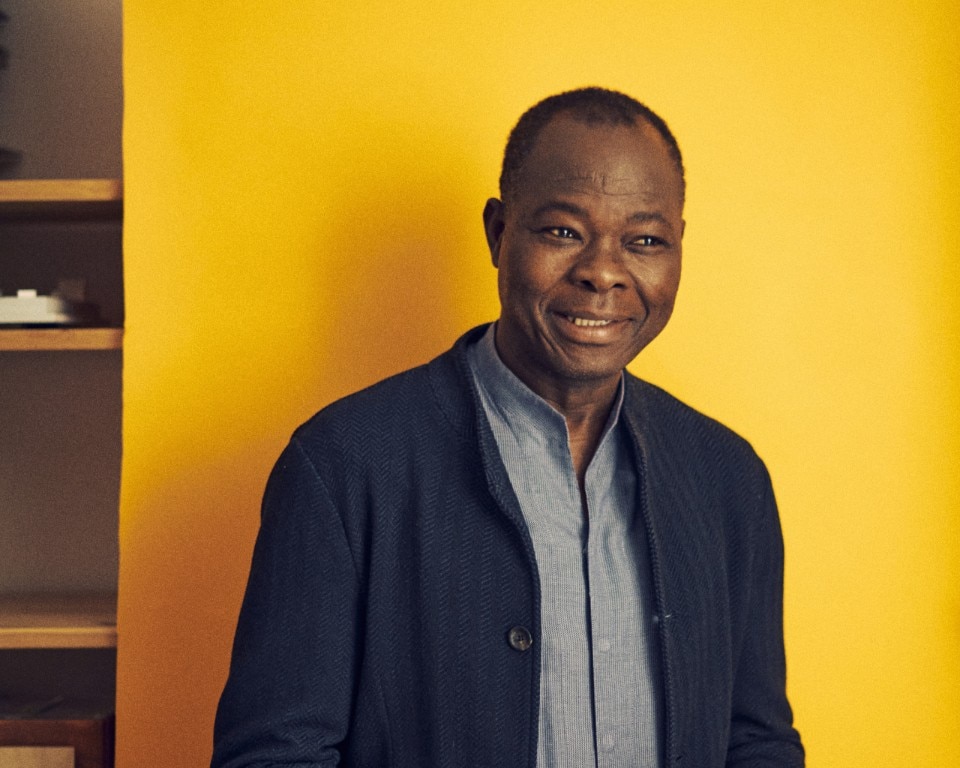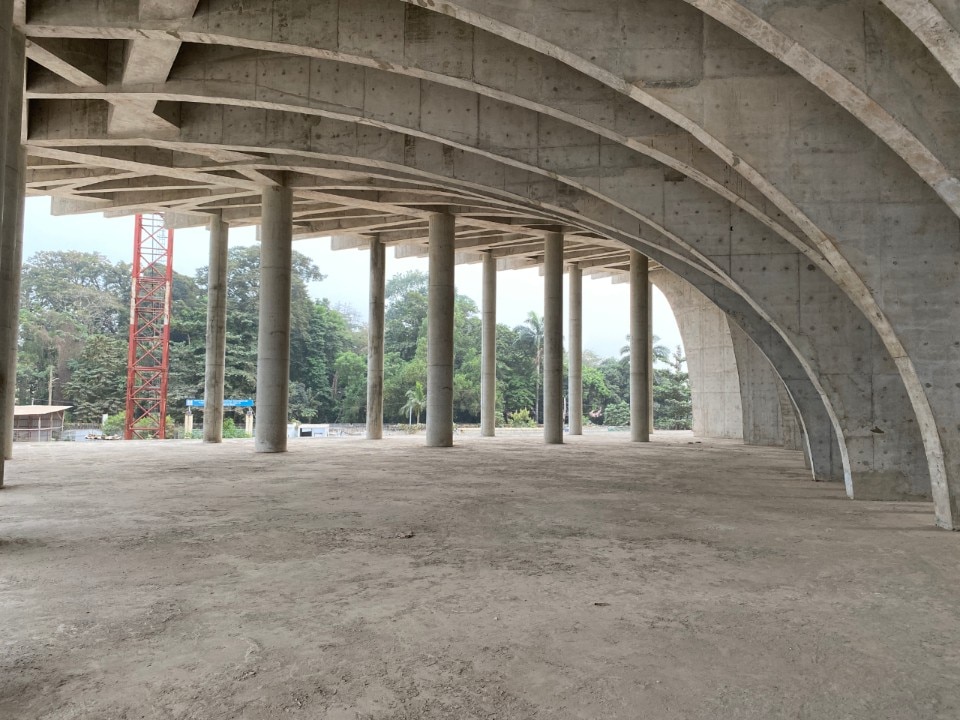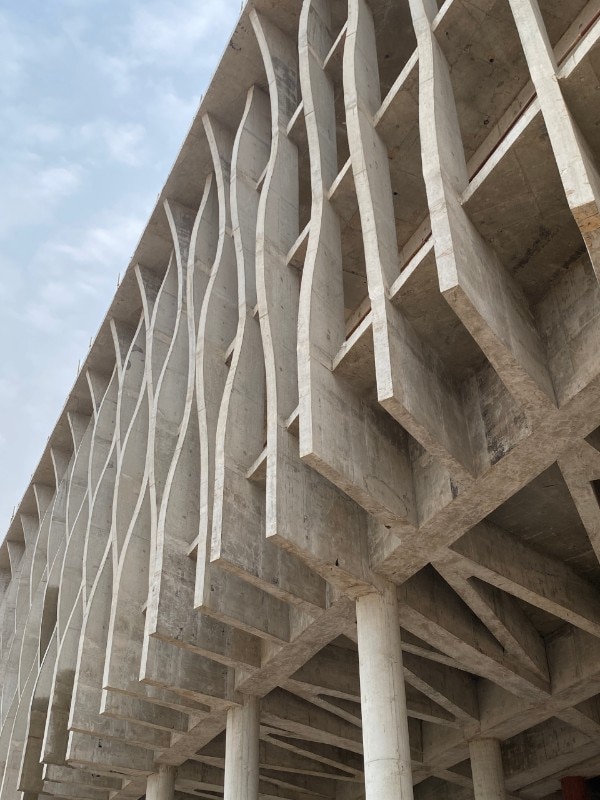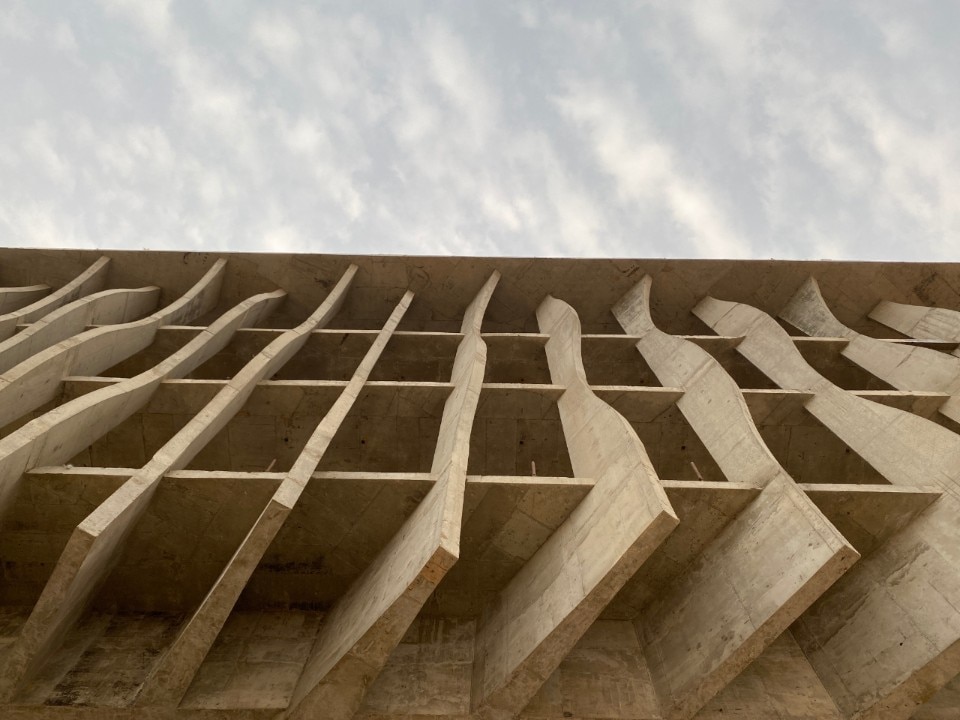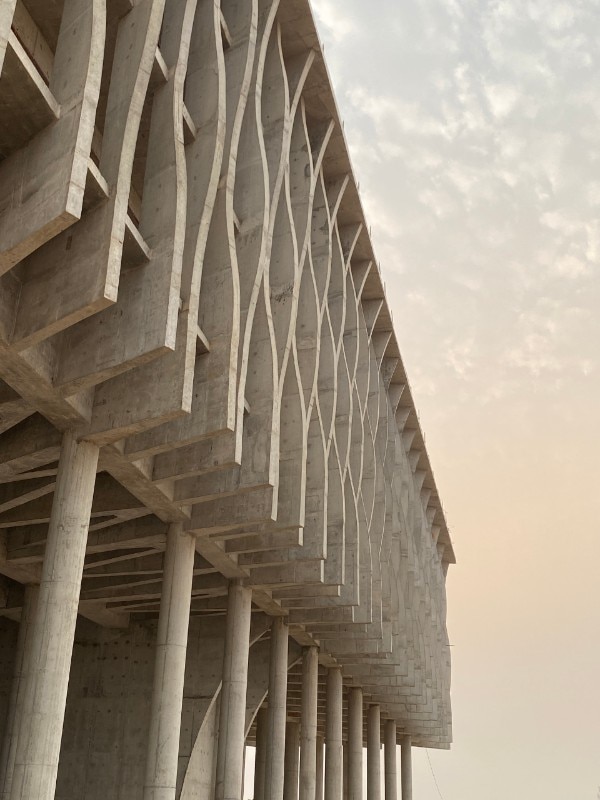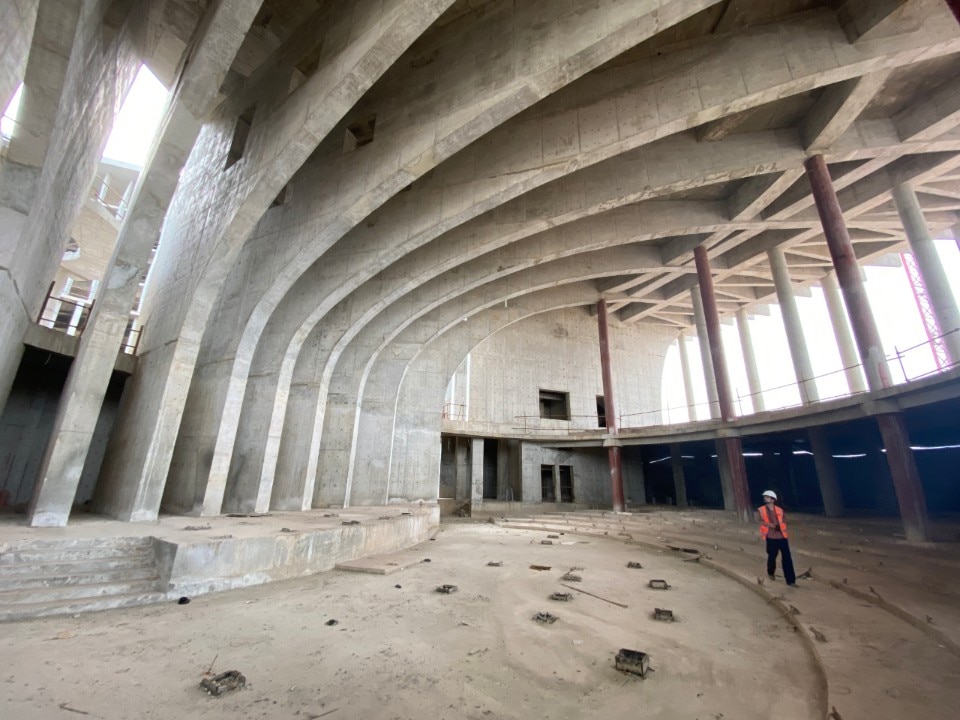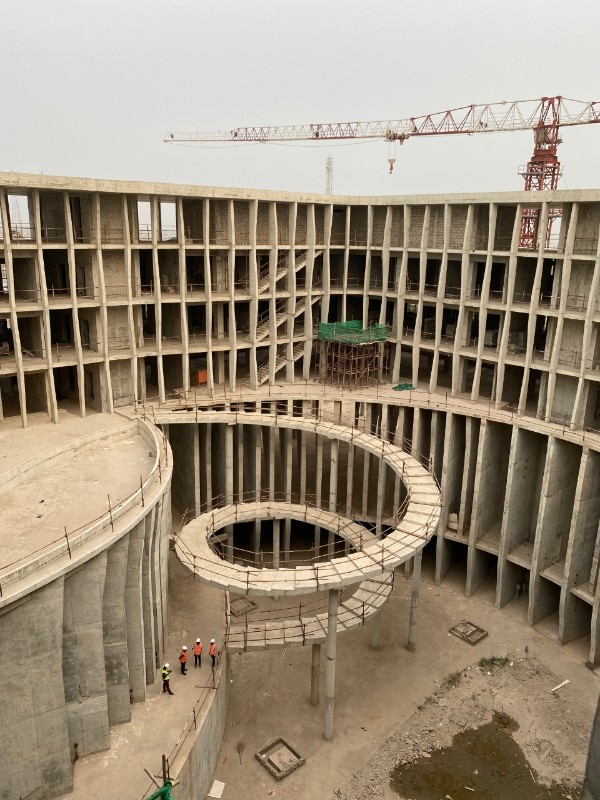When he answers, Francis Kéré is in AlUla, where he is developing the Cultural Oasis Agricultural Institute, a new centre for the promotion of sustainable agricultural technology and economic development in Saudi Arabia.
The work of the Pritzker laureate and his firm is in a phase of great expansion in scale compared to even 2021, when he had just completed the Burkina Institute of Technology. A project that was a turnaround from its predecessors. The key point was the transition from rammed-earth to the cast-in-place technique, always starting with local clay. The material can therefore be used as it arrives from the sourcing site, without the need to treat it, and has a fast process, which its local team now handles efficiently.
For me, sustainability is continuity, which means that even if I am no longer there, the teams we have formed will be able to continue working for their communities and pass on the knowledge they have acquired on these sites.
Francis Kéré
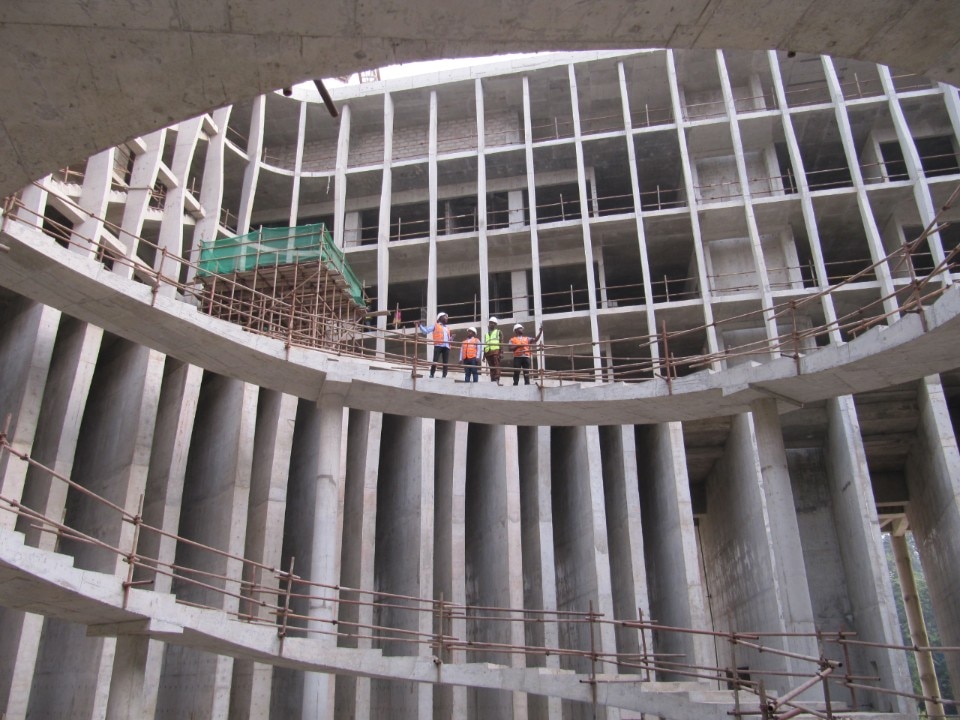
First tested in the Naaba Belem Goumma Secondary School, BIT has continued in the same vein: these are two incremental interventions, because they are designed to grow with the needs of the community. While in the first case, the formwork corresponds to a two-metre wall module, in the second, the module corresponds to an entire classroom and the casting can take place in a single session.
"For me, sustainability is continuity," says Kéré, "which means that even if I am no longer there, the teams we have formed will be able to continue working for their communities and pass on the knowledge they have acquired on these sites. Kéré says he "does not consider himself an intellectual". Nevertheless, with the work of the studio and foundation that bear his name, his impact both locally and globally remains undisputed.
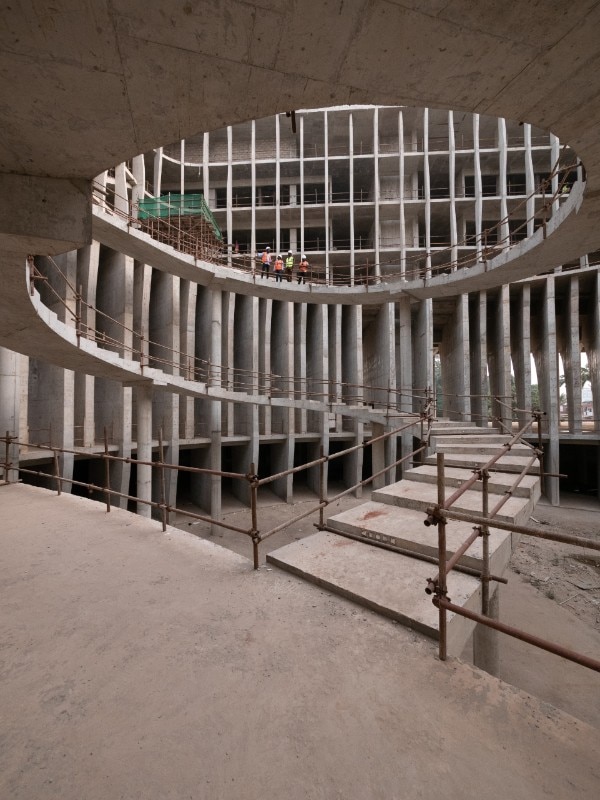
Today, he is working on commissions born between 2017 and 2019, such as the Goethe-Institut Dakar and the Benin National Assembly in Porto-Novo. This second project is part of a broader reflection on how architecture can communicate democracy, which began with the concept for the Burkina Faso National Assembly. Kéré's proposal for his country arose in the aftermath of the 2014 uprising that brought Blaise Compaoré's presidency to an end and caused the original structure to collapse in a fire. In the architect's vision, the volume was to be articulated as a stepped pyramid structure that would allow visitors to enjoy a broad perspective on the landscape.
The experiential dimension meets the metaphorical one through the possibility of access to a privileged point, an operation that seems reminiscent of the gesture that Norman Foster thought up for the dome of the Reichstag in Berlin, where Kéré has lived since 1985. This element returns in the Benin National Assembly, now in an advanced state of construction, which, however, transfers public accessibility to the horizontal plane, connecting the building to the surrounding park and giving it the form of "a palaver tree, which in West African culture is the place where meetings take place where communities meet and confront each other".
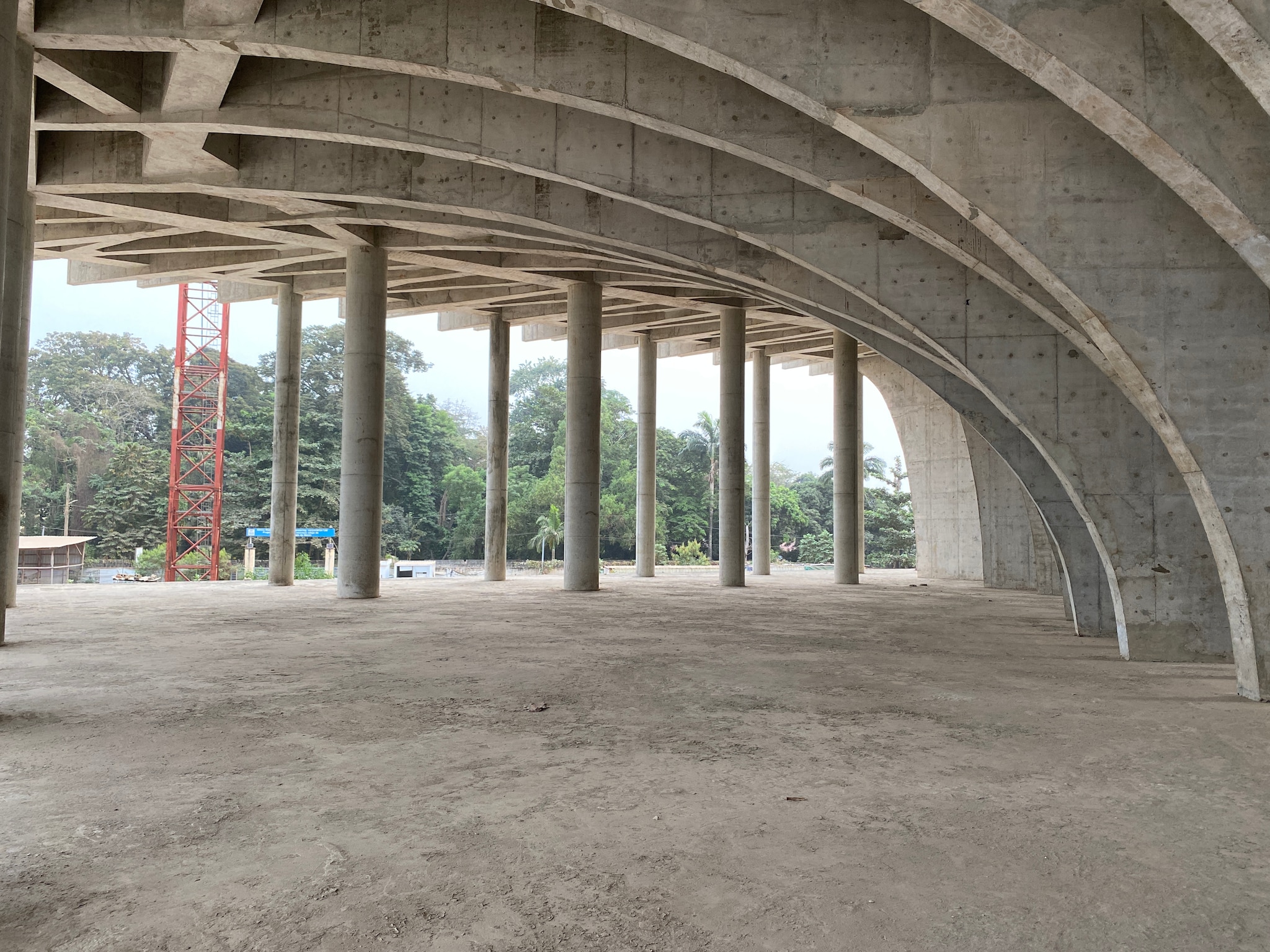
At the same time, Kéré tells Domus that he is working on another project of great symbolic value, namely the memorial dedicated to the president of Burkina Faso and pan-Africanist revolutionary Thomas Sankara (1949-1987) in Ouagadougou, on the site where he was assassinated. It was he who, in August 1984, replaced the colonial name Alto Volta with the current one, which in the local language means 'Land of the Whole'. The desire here is to transform the perception of the place: "no longer a site that evokes terrible moments, but an experience that can tell visitors about the ambitions that led to the 1983 revolution: universal education, food self-sufficiency and women's emancipation". The project is part of the urban development called the Ouagadougou Green Belt and initially consisted of a circular facility to house a range of public services, with an 87 m tower, restaurants, ateliers, a media library, shops, offices and other multi-use facilities, integrated into the landscape with a series of green ramps. Kéré mentions some local bureaucratic resistance, but work is scheduled to be completed by the end of 2024, with a different configuration.
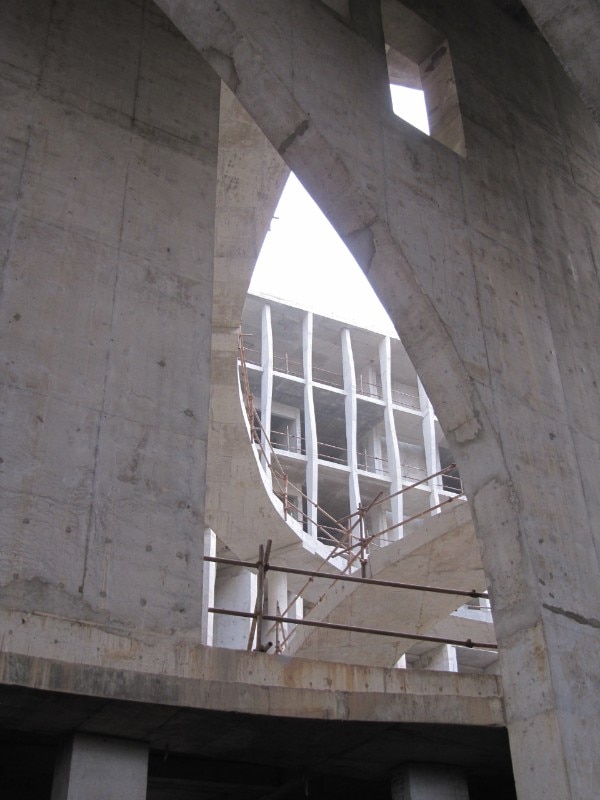
Transforming the meaning of places is something Kéré is therefore devoting a lot of energy to, but it is a theme that returns, on the scale of objects and in the opposite direction, in the Virtual Museum of Stolen Cultural Objects, a collaboration between Unesco and Interpol. A project that sees Kéré working in the absence of matter, announced by Unesco in late 2023 as "the first immersive reality
virtual museum of stolen cultural objects on a global scale". When asked about what the museum will contain, Kéré speaks, for example, of a Cameroonian drum, exhibited at the Huboldt Forum in Berlin, whose use no one could trace. "Over the years, a legend had been built, they were thought to be instruments used in amorous contexts," says Kéré, "but, after much research, it was discovered that they were used for communication between villages, which were then destroyed by colonisation processes”.
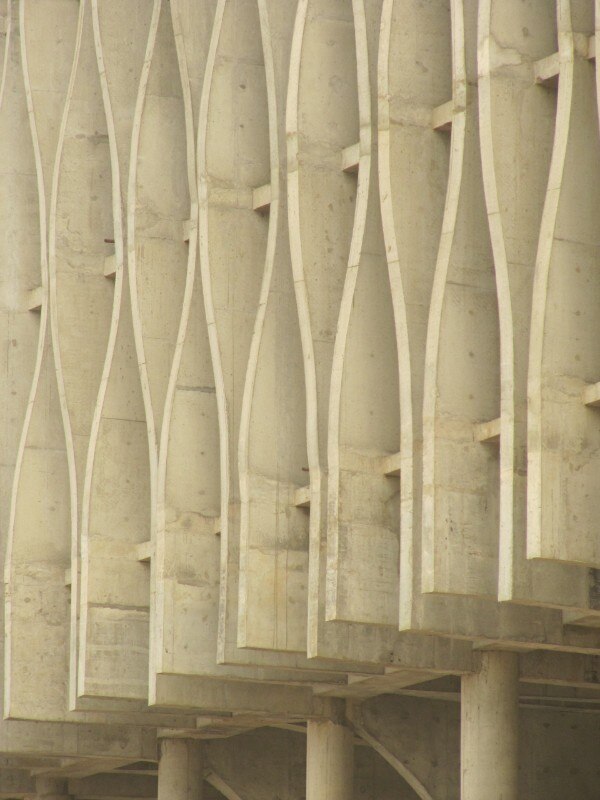
In this new phase of production, we will watch Francis Kéré confront himself with new scales and new challenges. But it seems clear that he has never ceased to have the same curiosity as that boy who, growing up in Gando, 'built architecture with whatever came his way'.
Opening image: ©Urban Zintel


